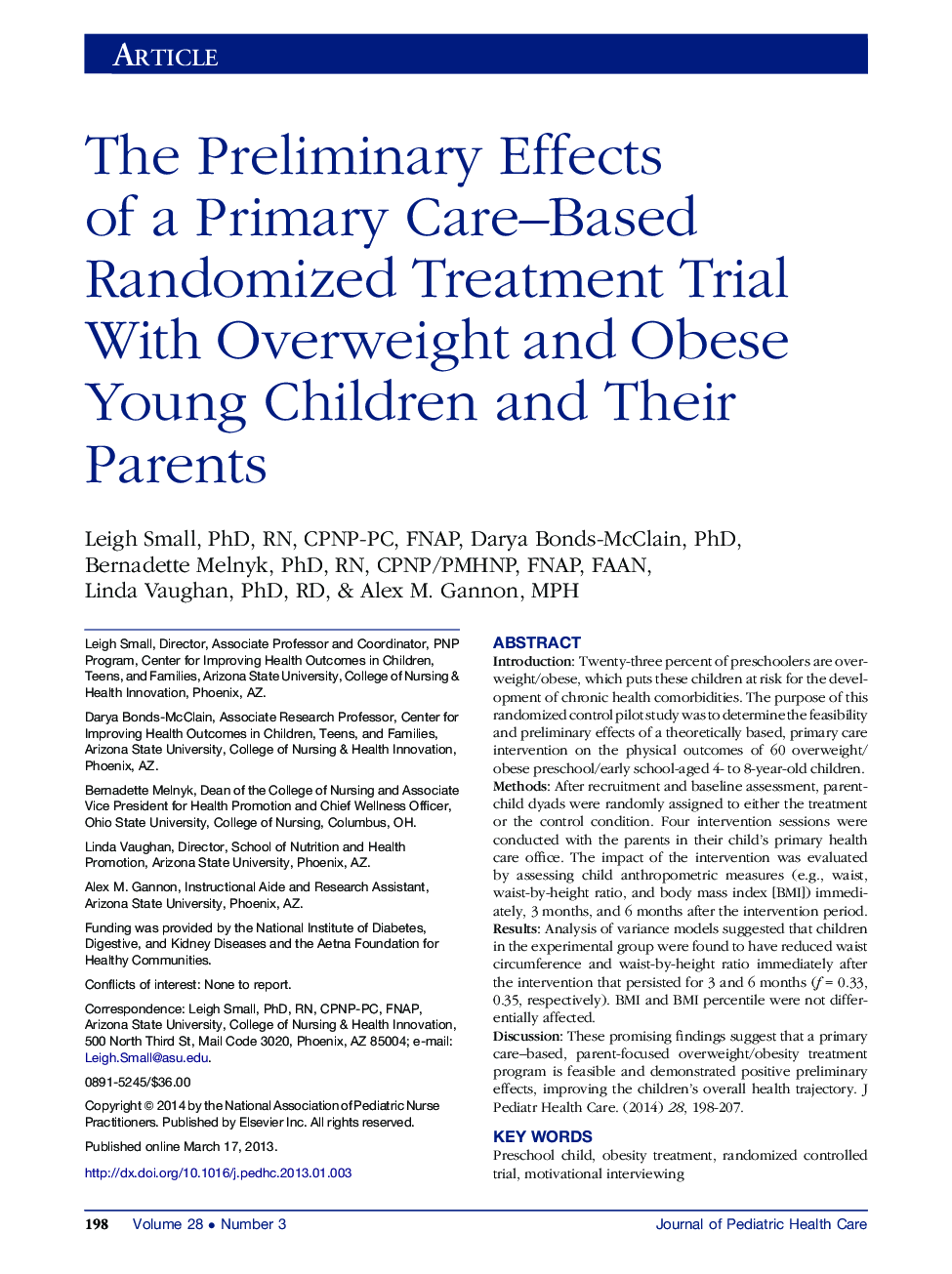| Article ID | Journal | Published Year | Pages | File Type |
|---|---|---|---|---|
| 2662249 | Journal of Pediatric Health Care | 2014 | 10 Pages |
IntroductionTwenty-three percent of preschoolers are overweight/obese, which puts these children at risk for the development of chronic health comorbidities. The purpose of this randomized control pilot study was to determine the feasibility and preliminary effects of a theoretically based, primary care intervention on the physical outcomes of 60 overweight/obese preschool/early school-aged 4- to 8-year-old children.MethodsAfter recruitment and baseline assessment, parent-child dyads were randomly assigned to either the treatment or the control condition. Four intervention sessions were conducted with the parents in their child's primary health care office. The impact of the intervention was evaluated by assessing child anthropometric measures (e.g., waist, waist-by-height ratio, and body mass index [BMI]) immediately, 3 months, and 6 months after the intervention period.ResultsAnalysis of variance models suggested that children in the experimental group were found to have reduced waist circumference and waist-by-height ratio immediately after the intervention that persisted for 3 and 6 months (f = 0.33, 0.35, respectively). BMI and BMI percentile were not differentially affected.DiscussionThese promising findings suggest that a primary care–based, parent-focused overweight/obesity treatment program is feasible and demonstrated positive preliminary effects, improving the children's overall health trajectory.
